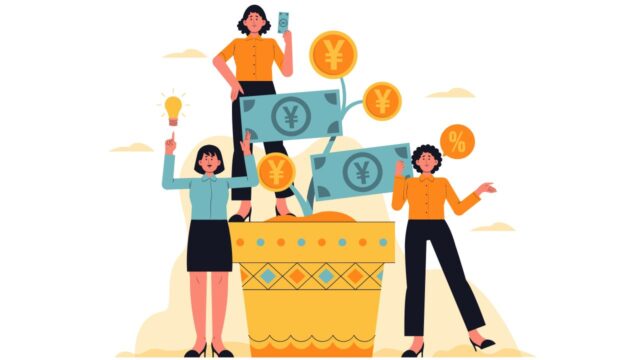
What is hot money?
Basically, hot money is the flow of funds from one country to another. It is supposed to generate a profit on short-term interest rate differentials and exchange rate shifts. The goal of hot money is to generate a profit by taking advantage of sudden changes in currency rates. However, there are certain risks associated with this investment strategy. If you are unfamiliar with these risks, read on to find out how to avoid them and maximize your investment returns.
Interest rates
There are several reasons why hot money investors seek out interest rates that are higher than their own. For one, they can easily make huge gains moving their money from one country to another when interest rates are very different. For example, if the EU and UK offer a 0.5% interest rate, a hot money investor in the UK might sell their Euros for Pound Sterling to earn higher interest. In other words, the money is not stuck in one place and will eventually have to be moved.
Investing in China is a great way to make money with high rates. The US federal reserve recently cut its interest rates to two percent, while China has been offering 4.14% interest rates. This caused investors to shift money from the U.S. to China. Some analysts estimate that hot money inflows in the United States are worth between $500 billion and $1.75 trillion. However, the rate of interest in each country is different, so there are a variety of factors that should be considered before investing in a country.
Exchange rates
Hot money refers to funds that move quickly and are in search of immediate profit. It is part of the global capital and generally reflects funds that are entering foreign markets with the expectation of high returns. Hot money is generally short-term and moves in response to changes in risk and opportunities. In the last two decades, advances in money transfer facilities have encouraged the flow of hot money. However, hot money is not without its risks. Read on to find out more about this controversial form of capital.
If a currency has a high interest rate, investors will trade it for the currency of the country with higher interest rates. The reverse process occurs if the currency’s value is low compared to the interest rate. Higher interest rates encourage capital flight and lower the value of the currency. In either case, a rising currency’s supply can undermine the economy. But governments can make it difficult for hot money to move and can help reduce the flow of money by implementing policy measures that increase the supply of currency.
Foreign investment
Hot money is a type of investing in which investors move their capital quickly between financial markets and countries, and often change currencies frequently. The aim of hot money investors is to profit from currency appreciation and interest rate differences. These investors are generally quick to shift their money from one country to another, and therefore the currencies of both countries can appreciate in value over time. This method is especially beneficial for developing countries as it allows the money to move to other countries without losing its value.
In times of adversity, hot money investors often desert their businesses. Moreover, sudden capital inflow can increase the country’s liquidity stretch, leading to widening current account deficits and inflationary pressures. Hot money investors often abandon their investments during economic turbulence, so the capital market may not be able to distinguish between different types of money. The downside of hot money is that these investors can make their investments in countries that have political instability.
Disciplined income
The first step toward increasing your income is to spend less than you make. It is true that cutting your expenses to save money is possible, but there will come a time when you will need to cut other expenses as well, such as housing, food, and clothes. Disciplined income is an investment strategy that requires sacrificing your time and spending habits for the sake of an increased income. Disciplined income comes from saving more of your after-tax income than you spend. A prudent savings rate is a percentage of your income saved. If you are disciplined and willing to invest your money wisely, you can leverage these opportunities to increase your income.
A disciplined investor will invest in various assets. Diversification will help him minimize his risk and maximize his earnings. Once a certain investment has grown in value, it may be tempting to spend it, but disciplined investors will resist this temptation. Instead, they will reinvest in a different market and make a new investment. This way, they will not only increase their income, but also protect it from risk.
Transaction costs
Hot money is capital that moves from one country or economy to another, generally taking advantage of the lower interest rates. Because this money is easy to move around, it can have a dramatic impact on exchange rates and the value of a country’s currency. Typically, hot money flows between countries or regions to invest in a particular company, and these investments tend to be short-term. But how is this capital allocated? This article will discuss some of the issues involved in hot money transactions.
The main limitations of hot money are capital controls. This strategy relies on the free movement of capital and is therefore ineffective in countries with capital controls. Despite this, hot money investors can still make a profit if they invest in the right places. Nonetheless, the costs of these investments can be prohibitive for countries with capital controls. Here are some things to keep in mind before you invest in hot money. One: Make sure your economy has the ability to move money. A poor power grid or endemic corruption can prevent the movement of money.


































